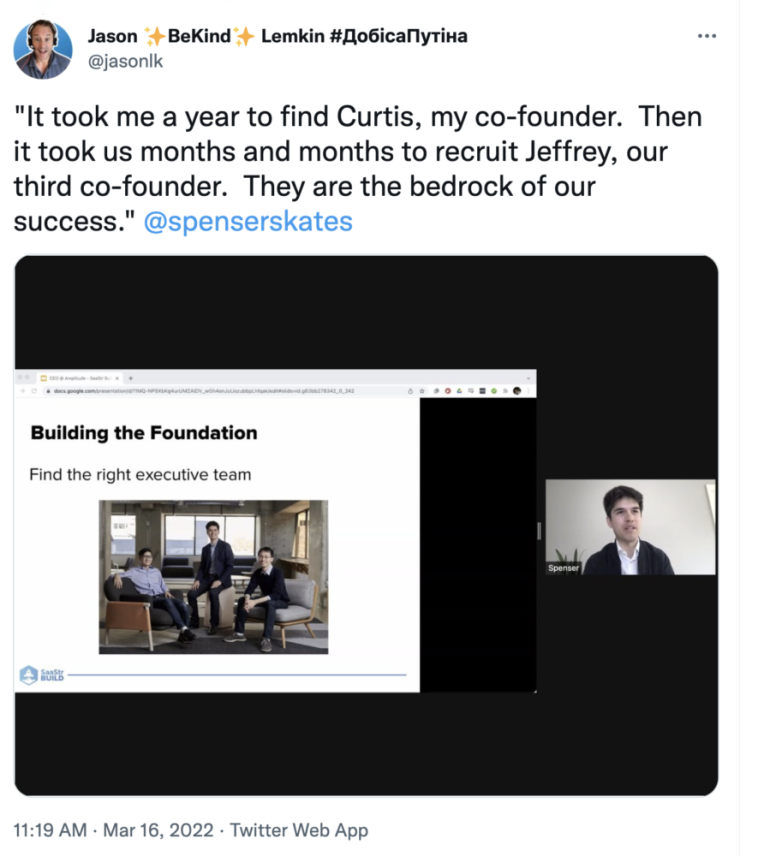- Like
- SHARE
- Digg
- Del
- Tumblr
- VKontakte
- Flattr
- Buffer
- Love This
- Save
- Odnoklassniki
- Meneame
- Blogger
- Amazon
- Yahoo Mail
- Gmail
- AOL
- Newsvine
- HackerNews
- Evernote
- MySpace
- Mail.ru
- Viadeo
- Line
- Comments
- Yummly
- SMS
- Viber
- Telegram
- JOIN
- Skype
- Facebook Messenger
- Kakao
- LiveJournal
- Yammer
- Edgar
- Fintel
- Mix
- Instapaper
- Copy Link
Q: Can one be considered a co-founder when they didn’t start a company?
Co-founders are often defined as the couple few folks who sit around the coffee table, dream up the idea, write the first line of code, get the first beta customer, etc.
And there really can just be a few. But even that can take some time. And even after that first customer or two, it’s still … early. You can still go find a co-founder if you don’t have a great one yet. You can see how Spenser Skates, CEO of Amplitude, took over 18 months to convince both his co-founders to join. (More of that story below).
And sometimes it’s worth maybe giving the title to a handful of folks that also meet one of these two definitions:
- “Slightly Late Founder”: Someone with such a key, critical role in the first 6 months that they basically add as much value as any founder. This is pretty common. IMHO — let them be a “founder” if it makes sense. You’ll know if someone meets this standard.
- “Ex Post Facto Founder”: This is my term for someone that may join much later, but is so critical, they are your right hand woman/man. Someone that joins maybe at $1m ARR or even $10m ARR, but owns so much of what needs to get done, carries so much of the load, and earns so much respect in the company, that they essentially play a founder role. I think it’s OK to give them a “founder” title. Even if they joined 1–3 years later. I don’t see this often done. But almost all great start-ups have someone like this join on the journey from $1m to $10m in ARR.
50 co-founders is ridiculous. But giving the title to another 1 or 2 folks from these two categories that deserves truly special recognition? Costs you nothing. But shows the world your respect for what they’ve owned, and done.
(note: an updated SaaStr Classic answer)



